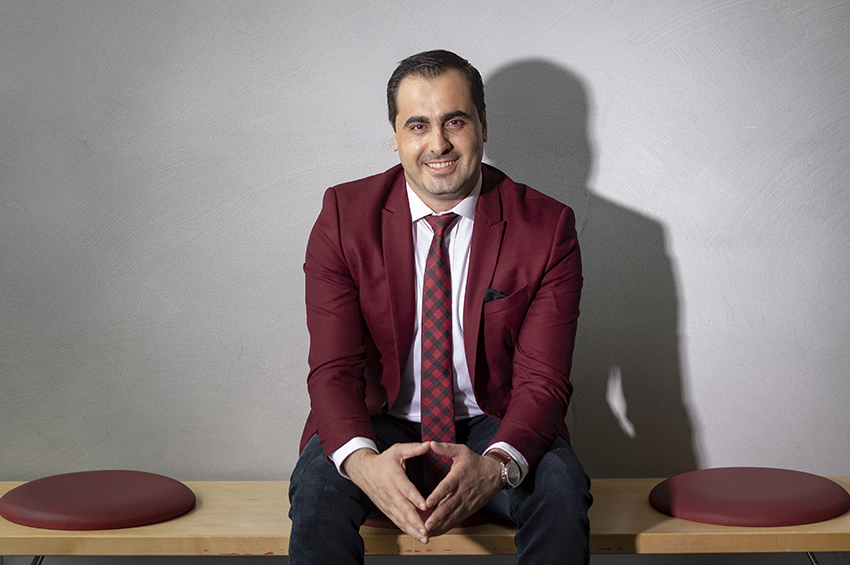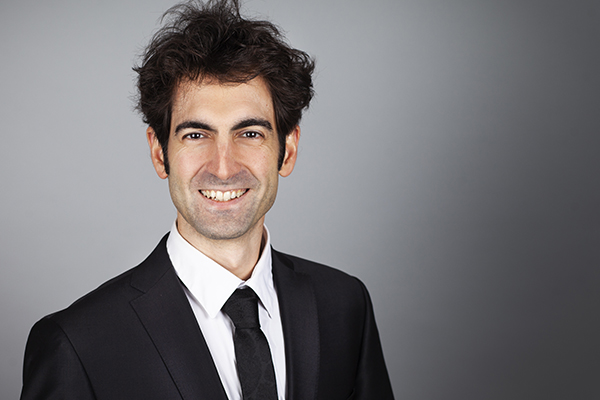Emek Abali, a solid mechanics researcher, has developed an innovative metal 3D printer, which he is now working to commercialise.
“The manufacturing methods used today are more than 100 years old. They work just fine, but since they are mostly subtractive they produce a lot of waste. Additive manufacturing, which we are working with, is instead produced layer by layer, which reduces waste considerably,” Emek Abali explains.
However, if you want to use additive manufacturing to produce something out of metal, the 3D printers available today are very expensive, and this is where Emek Abali´s innovation will come in and make production more affordable.
“I really want to make sure my innovation is used in society, but I did not know much about how to build and grow a company, or commercialise and scale my idea. I know how to do research, but for the rest I needed help,” Emek Abali says.
The journey towards commercialisation
To get this help, Emek Abali contacted UU Innovation and started planning his journey towards commercialisation. In addition to the help from business advisors and intellectual property experts, he received the advice to apply to their mentor programme in order to connect with someone outside academia who has made a similar journey.
In the UU Innovation mentor programme, researchers are matched with experienced mentors from the business community. The mentors' role is to contribute with new perspectives, knowledge and contacts that give the researcher's innovation project an extra boost.
The right match
Emek Abali was paired with Mamoun Taher, researcher at the Department of Chemistry – Ångström Laboratory and founder of Graphmatech, a materials technology company that develops and sells graphene-based solutions.

As a mentor, Mamoun Taher shared his experience of starting and running a research-based company. Photo: Mikael Wallerstedt.
“In the beginning of my own journey as an entrepreneur I did not have a mentor, so I wanted to give that opportunity to, and share my experiences with, others. When I was asked by UU Innovation to be a mentor to Emek, I looked at his technology and his driving forces and saw that I could help. I understand his technology and the value it will give to society, and I wanted to be there for him during his journey.”
During the course of the programme, Emek Abali and Mamoun Taher agreed to meet at least 6 times, and they met in different ways, e.g., IRL and over Zoom, both formally and informally, but the meetings were structured at all times, with an agenda.
“In one meeting we looked at my pitch deck, and another time we discussed intellectual property strategies or team approach,” Emek Abali explains.
Honesty means everything
“I really appreciated having an honest mentor like Mamoun who not only shared his success stories, but also the challenges and setbacks. That makes you realise that even successful people struggle. Having a mentor made me feel like I am not alone, that others have gone through the same challenges before me,” Emek Abali says.
Being a mentor is also rewarding, and Mamoun Taher says the collaboration was stimulating for him, too.
“It is indeed a two-directional process, and every discussion left me inspired and with new ideas. I always learned, and I loved how our different perspectives gave me new energy,” he explains.
Emek Abali and Mamoun Taher agree that the mentor programme helps researchers who want to develop innovations from their research results, and both highlight the importance of having the right focus and that networks are invaluable to the process.
“My own journey has made me realise that business contacts are golden, and by assisting Emek with building such a network, I believe that I have helped him a lot,” Mamoun Taher concludes.
